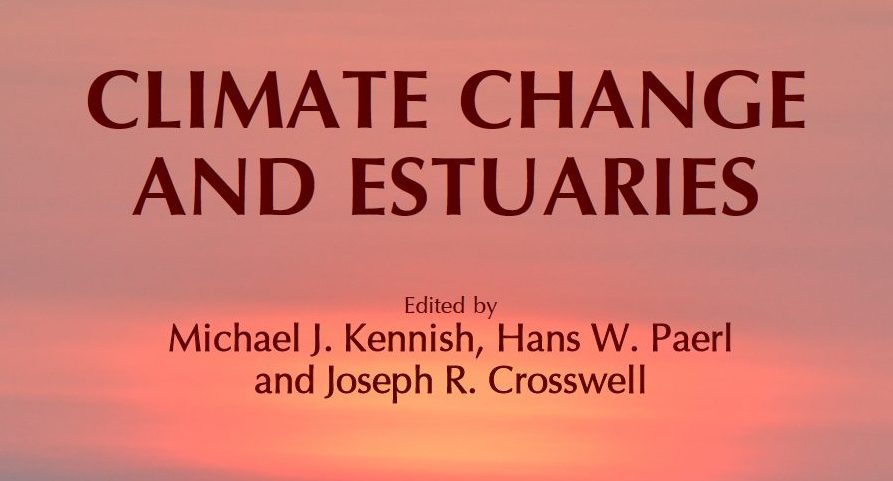
Engaged research featured in new book
Publication Announcement
We have a chapter on engaged research in coastal Maine in the forthcoming book, Climate Change and Estuaries. This book is scheduled for publication on September 15th, the first day of National Estuaries Week. Learn more about the book here and download this flyer to pre-order your copy at a discount today!
The chapter abstract is below, along with the preferred citation:
This chapter introduces some of the knowledge and approaches used to assess and manage for resilience to climate change, with a focus on estuaries and coastal marine ecosystems and the human communities that are part of these coupled social-ecological systems. We define resilience as the ability of a system to maintain functioning in the face of disturbance, after Folke and colleagues (2004, 2016) and many others. Resilience can be characterized based on the social or environmental attributes of a system, or by a combination of social and environmental variables. Measuring and monitoring changes in social-ecological resilience require first clearly defining the system of interest and the relevant spatial and temporal scales. While resilience is recognized as a feature that can contribute to or inhibit the sustainability of coastal ecosystems and human communities in the face of climate impacts and other perturbations, examples of monitoring and managing for resilience in coastal systems remain rare. We highlight several examples of how such monitoring and management can be done, with attention to climate change impacts and their consequences. We close with a discussion of future challenges and opportunities related to the science and management of social-ecological resilience.
Leslie, H. M., M. L. Britsch, M. Cucuzza, K. E. Pellowe, S. Risley, J. S. Stoll. 2023. Managing for resilience of estuarine & coastal marine environments to climate change. Ch. 30, Climate Change & Estuaries. M. Kennish, H. Paerl, J. Croswell (eds). Taylor & Francis.
